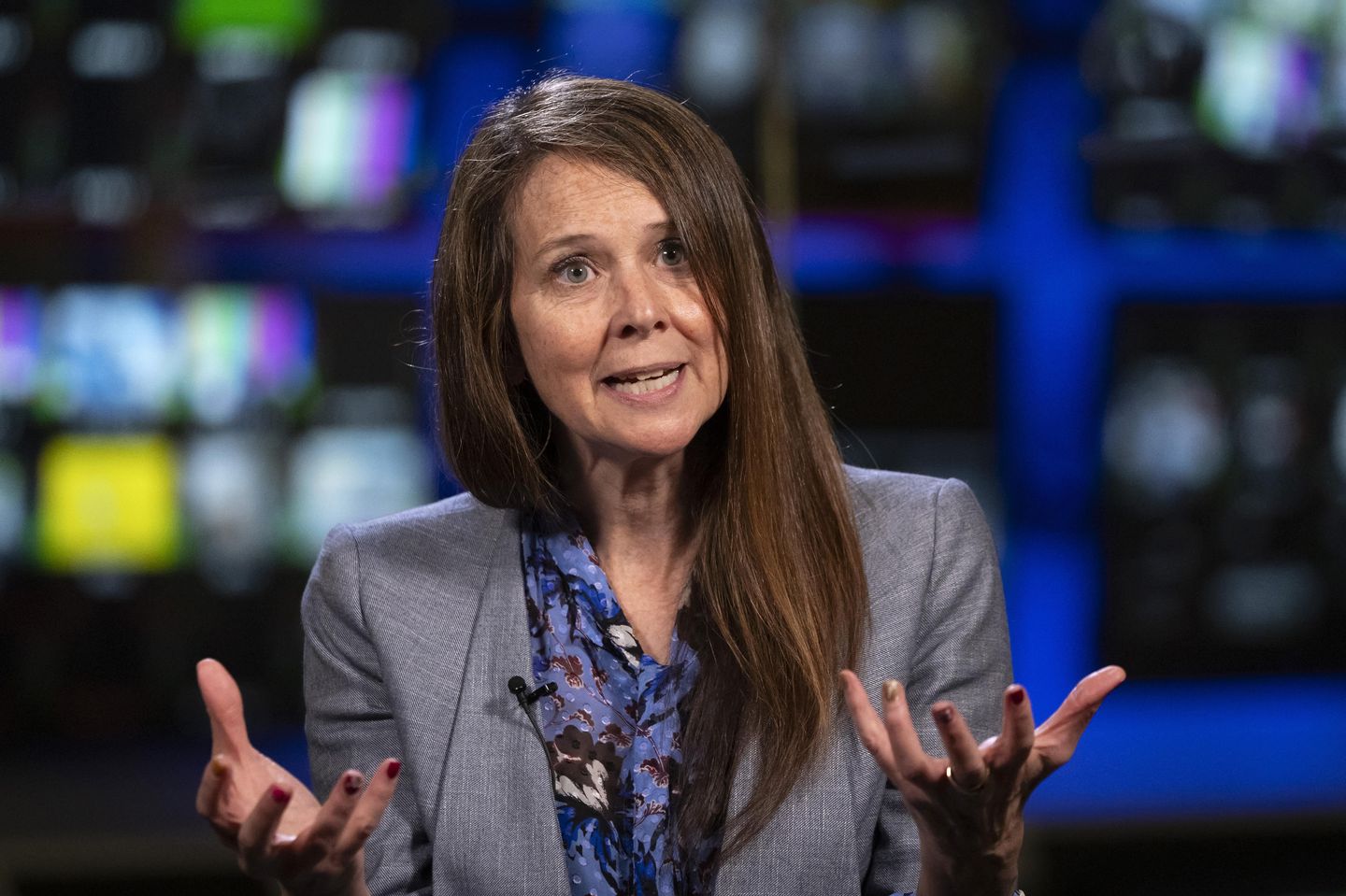
Former Biden administration cyber official Jen Easterly said she fears President Trump’s personnel changes represent something more sinister than the normal churn of the revolving door in the federal government.
Ms. Easterly, former leader of the Cybersecurity and Infrastructure Security Agency, is irked by Mr. Trump ousting the leaders of the National Security Agency and U.S. Cyber Command and his issuing a memo cracking down on former CISA official Chris Krebs.
“What’s happening now is not a policy disagreement, but something dark: the targeting and removal of nonpartisan public servants and the normalization of loyalty oaths to something other than our Constitution,” Ms. Easterly wrote on LinkedIn on Friday. “And if we — who aim to protect critical systems — can’t defend the humans who manage and maintain them, what exactly are we securing?”
CISA struggled to secure its own systems under Ms. Easterly. In March, Sen. Charles E. Grassley said CISA had failed to provide Congress basic information about a hack it suffered in January 2024, when cyberattackers breached a tool used by the government to track facilities housing dangerous chemicals.
CISA told potential victims last year that it did not know the full extent of the possible damage caused by the hack.
Mr. Trump’s administration has sought to trim the size of CISA, which added to its headcount under Ms. Easterly’s leadership.
Ms. Easterly previously decried Mr. Trump’s downsizing of the federal government in a message on LinkedIn. She said in February that her team had hired more than 2,000 people for the agency in three and a half years.
The Trump administration has reported goals of eliminating 1,300 people from CISA but the agency remains unsure how long it could take to accomplish the cuts as of earlier this month, according to Cybersecurity Dive.
Mr. Trump sought to make other changes to America’s cyber establishment in April as well. He ousted Air Force Gen. Timothy Haugh and his deputy, and Mr. Trump separately issued a memo targeting Mr. Krebs.
The memo designated Mr. Krebs a “bad-faith actor who weaponized and abused his government authority” and suspended any security clearance held by Mr. Krebs and his associates at the cyber firm SentinelOne. Mr. Krebs subsequently announced his departure from SentinelOne.
Mr. Trump’s reasons for changing the leadership atop the NSA and Cyber Command are not fully known, as the Department of Defense did not provide any explanation when it announced the end of Gen. Haugh’s service.
The president has the authority to appoint and remove the leadership of the NSA, Cyber Command, and CISA. The Senate reviews such appointments and may confirm or reject the nominees.
But Ms. Easterly said Mr. Trump’s decision to remove the cyber leaders and target Mr. Krebs puts cybersecurity at the risk of becoming political.
“They’re part of a larger drift, one that risks hollowing out—and worse, politicizing—the U.S. federal cyber ecosystem when we can least afford it, undermining the capability of our country’s most important cybersecurity agencies at the same time that Chinese state-sponsored hackers are holding our nation at risk,” Ms. Easterly said.
CISA is no stranger to politics, however.
During Mr. Biden’s tenure in office, CISA took a hands-on role in identifying information the government disliked. CISA assembled a team in 2021 focused on combating misinformation, disinformation, and malinformation, according to a 2022 Department of Homeland Security watchdog report.
Where misinformation and disinformation involve false facts that distort truth, the Biden administration’s focus on malinformation was particularly concerned with information that is based on facts but that the federal government determined was misleading anyway.
Now that Mr. Biden’s appointees are no longer in power, Ms. Easterly is urging cyber officials to speak up and defend her goal of protecting institutions from the new administration’s changes.
“Some moments in history demand character over calibration,” Ms. Easterly wrote. “If we stay silent when experienced, mission-driven leaders are sidelined or sanctioned, we risk something greater than discomfort; we risk diminishing the very institutions we are here to protect.”
The Washington Times reached out to the White House for comment.
While federal institutions remain intact, the American people and others around the world have suffered at the hands of digital thieves and scammers that CISA is charged with guarding against.
The FBI said last week that it saw a record-high loss of $16.6 billion to online scammers and cyberattackers last year.












